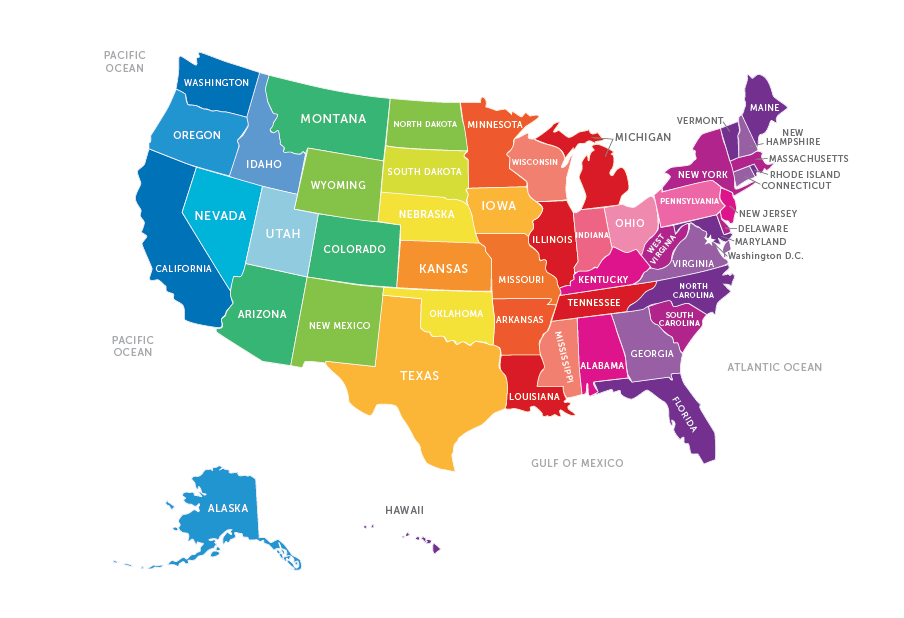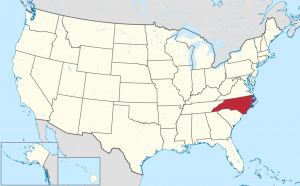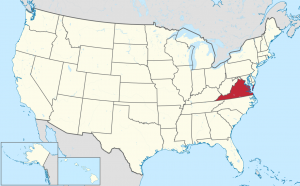How the US States Got Their Names
Alabama
 This southern state was named for the Native American tribe that lived there when the European settlers showed up. In their own language. they were called the Albaamaha. lt’s likely that this name means something along the lines of “plant gatherers: though this isn’t known for sure. While there isn’t much evidence about what the name means in their own language. their neighbours, the Choctaws, had two words that are similar: alba means plant, and amo means to cut or gather. In addition. it is known that the Albaamaha practiced agriculture. lt’s thought that the Choctaws might have used those words to describe the Albaamaha, who then started calling themselves the resulting word. When European settlers arrived, they Anglicised it to make it easier to pronounce and named the resulting state after the native residents.
This southern state was named for the Native American tribe that lived there when the European settlers showed up. In their own language. they were called the Albaamaha. lt’s likely that this name means something along the lines of “plant gatherers: though this isn’t known for sure. While there isn’t much evidence about what the name means in their own language. their neighbours, the Choctaws, had two words that are similar: alba means plant, and amo means to cut or gather. In addition. it is known that the Albaamaha practiced agriculture. lt’s thought that the Choctaws might have used those words to describe the Albaamaha, who then started calling themselves the resulting word. When European settlers arrived, they Anglicised it to make it easier to pronounce and named the resulting state after the native residents.
Alaska
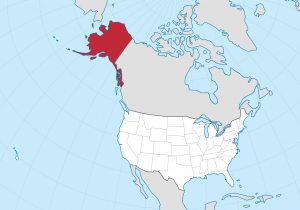 This state name was also inspired by its native people. The Aleuts called the Alaskan Peninsula alaxsxaq, which means “the object toward which the action of the sea is directed.” Once again, this name was Anglicised for easier
pronunciation (the original word sounds something like “a lock shock”).
This state name was also inspired by its native people. The Aleuts called the Alaskan Peninsula alaxsxaq, which means “the object toward which the action of the sea is directed.” Once again, this name was Anglicised for easier
pronunciation (the original word sounds something like “a lock shock”).
Arizona
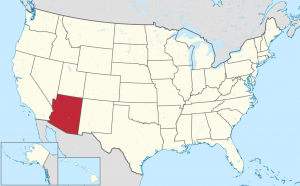 Arizona might have come from the Spanish mispronunciation of the native alionag, which meant “having a little spring”. The Spanish pronounced it arizonac. It’s believed that this doesn’t refer to actual water, it references
veins of silver discovered in Arizona in the 1730s. Another theory is that it comes from the Basque aritz onak, which means “good oak.”
Arizona might have come from the Spanish mispronunciation of the native alionag, which meant “having a little spring”. The Spanish pronounced it arizonac. It’s believed that this doesn’t refer to actual water, it references
veins of silver discovered in Arizona in the 1730s. Another theory is that it comes from the Basque aritz onak, which means “good oak.”
Arkansas
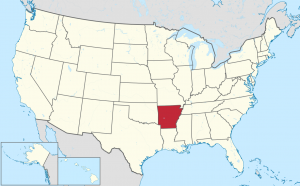 This name actually comes from the word the Illinois people assigned to the natives living in the area: akansa. It meant “people of the south wind: When the French started exploring the area, they pronounced the word with an r and then added an s to make the word plural.
This name actually comes from the word the Illinois people assigned to the natives living in the area: akansa. It meant “people of the south wind: When the French started exploring the area, they pronounced the word with an r and then added an s to make the word plural.
California
 There are three theories for the origin of the name of California: First, that it came from the Native
American words kali torn, or “high hill;” second, the Catalan words calor torn, or “hot oven;· and third, it
is named for a fictional place mentioned in the 1500s novel ‘Las Sergas de Esplandian’ by Garci Ordonez de Montalvo. The fictional California was an island in the West Indies ruled by women and covered in gold.
There are three theories for the origin of the name of California: First, that it came from the Native
American words kali torn, or “high hill;” second, the Catalan words calor torn, or “hot oven;· and third, it
is named for a fictional place mentioned in the 1500s novel ‘Las Sergas de Esplandian’ by Garci Ordonez de Montalvo. The fictional California was an island in the West Indies ruled by women and covered in gold.
Colorado
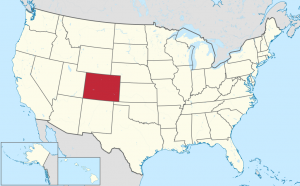 Most people with a basic knowledge of Spanish know that rojo means “red”. Well, turns out so does colorado, which is an alternate word for red usually used in instances like “to turn red” or “go as red as” something. Spanish explorers in the area noticed red silt in the river they named the Rio Colorado, which is how the name came about.
Most people with a basic knowledge of Spanish know that rojo means “red”. Well, turns out so does colorado, which is an alternate word for red usually used in instances like “to turn red” or “go as red as” something. Spanish explorers in the area noticed red silt in the river they named the Rio Colorado, which is how the name came about.
Connecticut
 The native people of Connecticut were called the Mohegans, who spoke Algonquin. They had originally named the Connecticut River quinnitukqut, which means “long river place”. The word was Anglicised to the Connecticut that we know today.
The native people of Connecticut were called the Mohegans, who spoke Algonquin. They had originally named the Connecticut River quinnitukqut, which means “long river place”. The word was Anglicised to the Connecticut that we know today.
Delaware
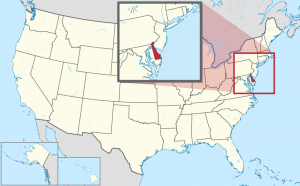 The first colonial governor of Virginia was Sir Thomas West who held the title Baron De La Warr. He travelled up what would soon be known as the Delaware River in the early 1600s. De La Warr likely comes from the French de la werre, which means “of the war” or “of the warrior.”
The first colonial governor of Virginia was Sir Thomas West who held the title Baron De La Warr. He travelled up what would soon be known as the Delaware River in the early 1600s. De La Warr likely comes from the French de la werre, which means “of the war” or “of the warrior.”
Florida
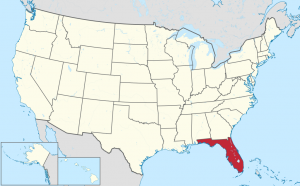 Florida has the distinction of being the oldest European place name in the United States. It was named by Ponce de Leon for the Spanish phrase pascua florida, which means “feast of flowers”, often used around Easter. He landed near St. Augustine in 1513 just a few days after Easter, and the area had a lot of interesting plant life.
Florida has the distinction of being the oldest European place name in the United States. It was named by Ponce de Leon for the Spanish phrase pascua florida, which means “feast of flowers”, often used around Easter. He landed near St. Augustine in 1513 just a few days after Easter, and the area had a lot of interesting plant life.
Georgia
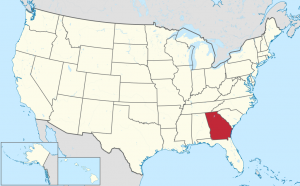 If you guessed that this state got its name from a King George, you’d be correct. It was named in honour of King George II, who granted a charter to make the area of Georgia a debtor’s colony. Ultimately, the state didn’t end up being a debtor’s colony, but the name stuck.
If you guessed that this state got its name from a King George, you’d be correct. It was named in honour of King George II, who granted a charter to make the area of Georgia a debtor’s colony. Ultimately, the state didn’t end up being a debtor’s colony, but the name stuck.
Hawaii
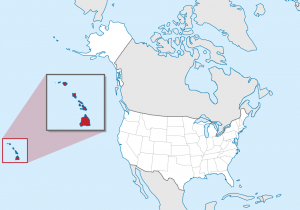 European explorers of the island said that natives called the area Hawaiki, which meant homeland. There’s also a story that a Polynesian who discovered the islands was called Hawaii Loa, and the islands might be named after him. That said, Hawaii Loa is usually considered more “legend” that “fact,” so the first theory is a bit more believable.
European explorers of the island said that natives called the area Hawaiki, which meant homeland. There’s also a story that a Polynesian who discovered the islands was called Hawaii Loa, and the islands might be named after him. That said, Hawaii Loa is usually considered more “legend” that “fact,” so the first theory is a bit more believable.
Idaho
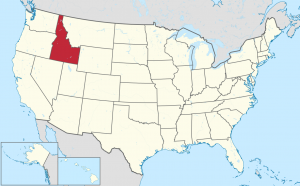 When the territory of Colorado was in its infancy and officials needed a name. George M. Willing suggested Idaho (pronounced ee-da-how back then), which he claimed was a Shoshone word for “the sun comes up from the mountains”. There was a lot of debate and claims that Willing had actually made up the word. Willing himself ended up looking into the word’s origins and discovered that the word didn’t actually exist as far as he could find, so they settled on Colorado instead.
When the territory of Colorado was in its infancy and officials needed a name. George M. Willing suggested Idaho (pronounced ee-da-how back then), which he claimed was a Shoshone word for “the sun comes up from the mountains”. There was a lot of debate and claims that Willing had actually made up the word. Willing himself ended up looking into the word’s origins and discovered that the word didn’t actually exist as far as he could find, so they settled on Colorado instead.
The Idaho territory was named a year later while everyone else was busy with the Civil War, and there was no one concerned enough to challenge the name, so it stuck. It is most likely simply a made up word. though there are also claims that it comes from the Apache word idaahe, which means “enemy”.
Illinois
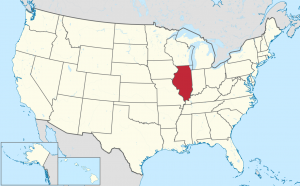 In 1674, French explorers first met the people that they called the Illinois. Jacques Marquette handily wrote about the name in his journal: “They replied that they were Ilinois … when one speaks the word … it is as if one said, in their language., “the men”.
In 1674, French explorers first met the people that they called the Illinois. Jacques Marquette handily wrote about the name in his journal: “They replied that they were Ilinois … when one speaks the word … it is as if one said, in their language., “the men”.
Indiana
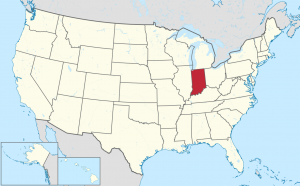 This name simply means “land of the Indians”. Those in charge of naming the area apparently wanted to honour the people who originally lived there (while, of course, driving those people out).
This name simply means “land of the Indians”. Those in charge of naming the area apparently wanted to honour the people who originally lived there (while, of course, driving those people out).
Iowa
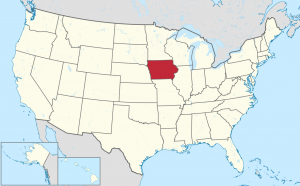 A Native American tribe called the loway once lived in Iowa, which is where the name comes from, but it isn’t clear what the name means. Today, the tribe says that the word is a French misspelling of Ayuhwa, which means “sleepy ones” – a name given to them by the Sioux. Europeans claim that it means “beautiful” or “beautiful land.”
A Native American tribe called the loway once lived in Iowa, which is where the name comes from, but it isn’t clear what the name means. Today, the tribe says that the word is a French misspelling of Ayuhwa, which means “sleepy ones” – a name given to them by the Sioux. Europeans claim that it means “beautiful” or “beautiful land.”
Kansas
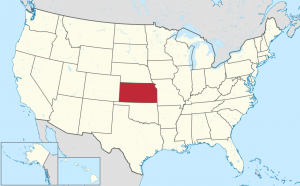 The Kansa people once lived along the Kansas River, and the state is named after them. Even before European settlers arrived on the scene, the Kansa people didn’t know what their own name meant because the word was so old with the meaning long forgotten.
The Kansa people once lived along the Kansas River, and the state is named after them. Even before European settlers arrived on the scene, the Kansa people didn’t know what their own name meant because the word was so old with the meaning long forgotten.
Louisiana
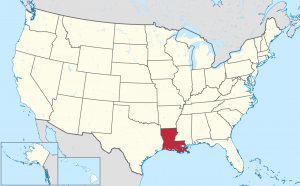 As the area was under French control until the Louisiana Purchase, you would be right in guessing that it was named in honour of King Louis XIV of France. The name simply means “Land of Louis.”
As the area was under French control until the Louisiana Purchase, you would be right in guessing that it was named in honour of King Louis XIV of France. The name simply means “Land of Louis.”
Maine
 One of the most popular theories is that it is derived from the nautical term “the main” or “Main Land”. Maine has an incredible number of islands off it’s coast, so perhaps sailors referred to it as “Maine”, as in “Main Land”, to distinguish it from the surrounding islands.
One of the most popular theories is that it is derived from the nautical term “the main” or “Main Land”. Maine has an incredible number of islands off it’s coast, so perhaps sailors referred to it as “Maine”, as in “Main Land”, to distinguish it from the surrounding islands.
In 2001, the state legislature, not apparently too concerned as to if it was fact or not, adopted the resolution that stated that the state was named after the ancient French province of Maine, which was of Gaulish origin.
Maine was discovered by the French; however, the first known record of it being called Maine wasn’t until l0th August 1622 when it was chartered to English Royal Navy veterans, Sir Ferdinando Gorges and Captain John Mason who “intend to name The Province of Maine”. Mason himself served in the Royal Navy in the Orkney Islands where the main island was called “Mainland”. Gorges also may have had something to do with this as his family came from a village which neighbored “Broadmayne” and was at times known as Maine. There is also a small village in England that was once named Maine, though the connection to the state Maine is not knownif that is the origin. In whatever case, the name was finally officially set by King Charles of England in 1665 when he ordered that the “province of Maine be forever known as such.”
Maryland
 The Maryland charter was approved by King Charles I, whose wife was Queen Henrietta Maria. The colony was named in honour of her.
The Maryland charter was approved by King Charles I, whose wife was Queen Henrietta Maria. The colony was named in honour of her.
Massachusetts
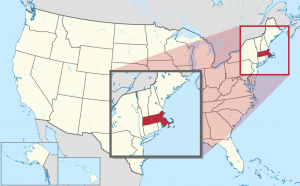 The state of Massachusetts was once inhabited by the Masachusett people. Their name loosely translates to “near the high hill; a reference to the Blue Hills.
The state of Massachusetts was once inhabited by the Masachusett people. Their name loosely translates to “near the high hill; a reference to the Blue Hills.
Michigan
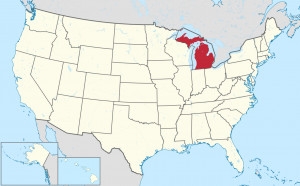 It is often claimed that this name means “many lakes” – but that is not the case. It actually means “large lake” and comes from the Ojibwa word misshikama. Michigan was a word used by the French, who found it easier to say.
It is often claimed that this name means “many lakes” – but that is not the case. It actually means “large lake” and comes from the Ojibwa word misshikama. Michigan was a word used by the French, who found it easier to say.
Minnesota
 The Dakota tribe called the Minnesota River mnisota, which meant “cloudy water. When
English speakers settled in the region, they Anglicised the word to Minnesota.
The Dakota tribe called the Minnesota River mnisota, which meant “cloudy water. When
English speakers settled in the region, they Anglicised the word to Minnesota.
Mississippi
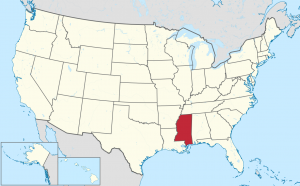 This was probably the first lengthy word you learned to spell, so it’s about time you learned what it means. It comes from the Ojibwa word messipi, meaning “big river”. It originally referred to the “big river” before it was applied to the state.
This was probably the first lengthy word you learned to spell, so it’s about time you learned what it means. It comes from the Ojibwa word messipi, meaning “big river”. It originally referred to the “big river” before it was applied to the state.
Missouri
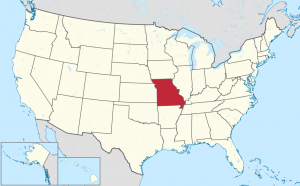 The Illinois people named the people who lived along what would later be known as the Missouri River the ouemessourita, which means something along the lines of “the people who have wooden canoes”. As with many of the other Native American place names. it was Anglicised to make it easier for English speakers to say.
The Illinois people named the people who lived along what would later be known as the Missouri River the ouemessourita, which means something along the lines of “the people who have wooden canoes”. As with many of the other Native American place names. it was Anglicised to make it easier for English speakers to say.
Montana
 Montana comes from the Spanish word montaria which means “mountain.” The state was aptly named as it is quite mountainous.
Montana comes from the Spanish word montaria which means “mountain.” The state was aptly named as it is quite mountainous.
Nebraska
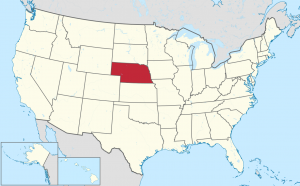 Continuing the trend, Nebraska comes from the Otoe word Ni Brasge which means “flat water”. The water in question is the Platte River. Once again, the word was
Anglicised to make it easier to pronounce.
Continuing the trend, Nebraska comes from the Otoe word Ni Brasge which means “flat water”. The water in question is the Platte River. Once again, the word was
Anglicised to make it easier to pronounce.
Nevada
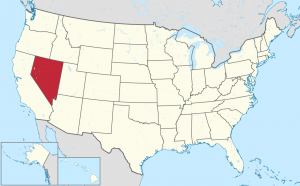 The state derives its name from the mountain range called the Sierra Nevada. In Spanish, nevada means “snowfall” (derived from “nieve, snow”). So, the name comes from the snow-covered mountains.
The state derives its name from the mountain range called the Sierra Nevada. In Spanish, nevada means “snowfall” (derived from “nieve, snow”). So, the name comes from the snow-covered mountains.
New Hampshire
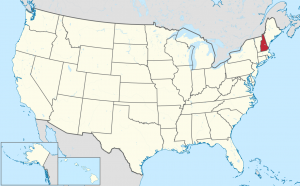 Like most things new; there first had to be an “old.” Hampshire is the name of a county in England. John Mason named the area New Hampshire after he received a land grant there; he had spent some time in Hampshire as a child.
Like most things new; there first had to be an “old.” Hampshire is the name of a county in England. John Mason named the area New Hampshire after he received a land grant there; he had spent some time in Hampshire as a child.
New Jersey
 The largest island of the British Channel Islands is called Jersey. One of New Jersey’s founders, George Carteret was born and raised on the island of Jersey and decided to name his new home after his old one.
The largest island of the British Channel Islands is called Jersey. One of New Jersey’s founders, George Carteret was born and raised on the island of Jersey and decided to name his new home after his old one.
New Mexico
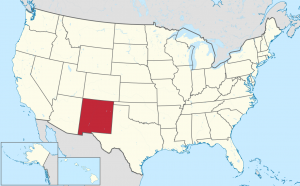 New Mexico was once part of Mexico. Mexico likely gets its name from the god of
war Mextli, who is the patron of the Aztecs. Incidentally, Mexico is not actually named Mexico. but rather ‘Estados Unidos Mexicanos’ (United Mexican States).
New Mexico was once part of Mexico. Mexico likely gets its name from the god of
war Mextli, who is the patron of the Aztecs. Incidentally, Mexico is not actually named Mexico. but rather ‘Estados Unidos Mexicanos’ (United Mexican States).
New York
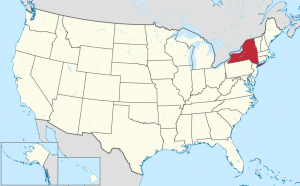 The city of York, England, is extremely old, and was established well before the arrival of the Romans. The Romans Latinized the name of the city to “Eboraci” or “Eboracum,” which eventually became York.
The city of York, England, is extremely old, and was established well before the arrival of the Romans. The Romans Latinized the name of the city to “Eboraci” or “Eboracum,” which eventually became York.
The state is named for the future James II of England, who was once the Duke of York.
North Carolina, South Carolina
These two states got their name from King Charles II. The Latin form of Charles is Carolus, which was then feminized into Carolina. The Carolina colony split into north and south in 1712 after the two regions started developing differently.
North Dakota, South Dakota
A Sioux tribe called the Dakota dominated the region when European settlers started to explore the area. It is believed that it means “friend” or “ally” In Sioux. The Dakota territory split into two after controversy about where the capital should be when they were looking at statehood.
Ohio
 The only evidence we have for the name of the state that is round on both sides and “hi” in the middle is a journal from a French traveller. He claimed that ohio was a Native American term for “beautiful river”. There is nothing else in the way of documented evidence to suggest this is true. Other translations suggested are “the great one” or “large creek”:.
The only evidence we have for the name of the state that is round on both sides and “hi” in the middle is a journal from a French traveller. He claimed that ohio was a Native American term for “beautiful river”. There is nothing else in the way of documented evidence to suggest this is true. Other translations suggested are “the great one” or “large creek”:.
Oklahoma
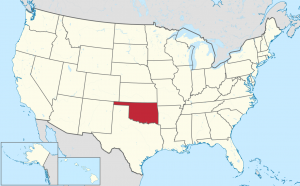 The Choctaw phrase ukla huma means “red persons” and was used by the Choctaw to describe Native Americans.
The Choctaw phrase ukla huma means “red persons” and was used by the Choctaw to describe Native Americans.
When the US government decided to name Oklahoma, they took the suggestion of the chief of the Choctaw tribe at the time.
Oregon
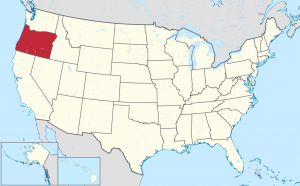 There are so many different theories about how Oregon got its name that no one knows exactly what to believe.
There are so many different theories about how Oregon got its name that no one knows exactly what to believe.
Here is a small sampling of origin stories: Spanish explorers called the natives of Oregon orejon, which means “big ears” The Columbia River, which runs through Oregon, wascalled le flueve aux ouragans by the French, which means “Hurricane River” Or it came from the Shoshone words ogwa pe-on, which mean “river of the west.”
Pennsylvania
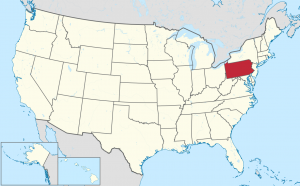 Pennsylvania means “Penn’s Woodland.” It was named after Admiral William Penn. After he died, King Charles granted the area to Penn’s son, also William Penn, as a payment of debt to the family.
Pennsylvania means “Penn’s Woodland.” It was named after Admiral William Penn. After he died, King Charles granted the area to Penn’s son, also William Penn, as a payment of debt to the family.
Rhode Island
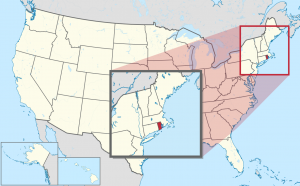 The state of Rhode Island says that it got Its name from a Dutch explorer who called it Roodt Eylandt (red island) because of the red clay on the shore. However, an Italian named Giovanni de Verrazzano made the first mention of what would become Rhode Island in a letter. There was an island off the coast of the mainland that reminded him of the island of Rhodes in the Medltterannean.
The state of Rhode Island says that it got Its name from a Dutch explorer who called it Roodt Eylandt (red island) because of the red clay on the shore. However, an Italian named Giovanni de Verrazzano made the first mention of what would become Rhode Island in a letter. There was an island off the coast of the mainland that reminded him of the island of Rhodes in the Medltterannean.
Tennessee
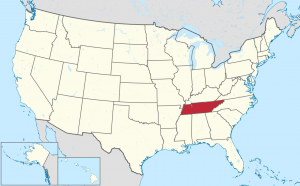 Tennessee came from-you guessed it-a Cherokee word that was Anglicised. The village of Tanasi on the Little Tennessee River is believed to be the origin of the
name, though the meaning of the word has since been lost.
Tennessee came from-you guessed it-a Cherokee word that was Anglicised. The village of Tanasi on the Little Tennessee River is believed to be the origin of the
name, though the meaning of the word has since been lost.
Texas
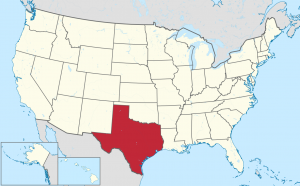 Before the Spanish arrived in Texas, it was home to several different tribes of Native Americans who used the word teysha to greet each other. Teysha, the origin of the word Texas, meant “friend” or “ally” and was used to greet someone. The Spanish morphed it into tejas (tay-has).
Before the Spanish arrived in Texas, it was home to several different tribes of Native Americans who used the word teysha to greet each other. Teysha, the origin of the word Texas, meant “friend” or “ally” and was used to greet someone. The Spanish morphed it into tejas (tay-has).
Utah
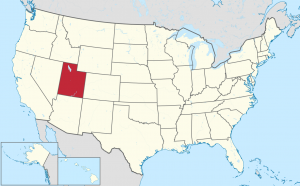 In the language of the native tribes of Utah, ute means “land of the sun”. The name could also be taken from the Apache words yudah or yiuta, meaning “they who are higher up.”
In the language of the native tribes of Utah, ute means “land of the sun”. The name could also be taken from the Apache words yudah or yiuta, meaning “they who are higher up.”
Vermont
 Vermont is named in memory of the Green Mountain Boys, an unauthorized militia group. The Green Mountain Boys defended land grants given to people by New Hampshire from New York officials who didn’t think New Hampshire had the right to grant land that was west of the Green Mountains. The name comes from the French, vert and mont, which translates to “green mountain.”
Vermont is named in memory of the Green Mountain Boys, an unauthorized militia group. The Green Mountain Boys defended land grants given to people by New Hampshire from New York officials who didn’t think New Hampshire had the right to grant land that was west of the Green Mountains. The name comes from the French, vert and mont, which translates to “green mountain.”
West Virginia, Virginia
Virginia was named for Queen Elizabeth, who was known as the ‘Virgin Queen’. The truth about her supposed virginity aside, Sir Walter Raleigh seems to think it was an appropriate name for the colony. West Virginia split off during the Civil War, as the people in those counties didn’t own any slaves (or owned very few) and didn’t agree with the pro-slavery Virginia.
Washington
 This state was, of course, named after George Washington, the first president of the United States.
This state was, of course, named after George Washington, the first president of the United States.
The suffix -ton on Washington’s name means something along the lines of “from the town” while “washing” might mean “water” rather than “cleaning’ So, ‘George water from the Town’.
Wisconsin
 The native tribes of Wisconsin called the Wisconsin River Meskousing. Not exactly close to the name we know today. Jacques Marquette recorded the name
as Ouisconsin, and that was then Anglicised to Wisconsin. The word meant something along the lines of “red” for the red sandstone in the river’s delta.
The native tribes of Wisconsin called the Wisconsin River Meskousing. Not exactly close to the name we know today. Jacques Marquette recorded the name
as Ouisconsin, and that was then Anglicised to Wisconsin. The word meant something along the lines of “red” for the red sandstone in the river’s delta.
Wyoming
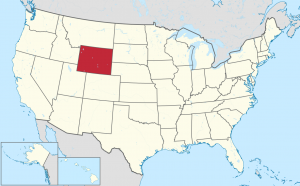 This state followed the trend of Anglicising Native American words. In this case, it was the Lenape word mecheweiami-ing, which means “on the big plains”.
This state followed the trend of Anglicising Native American words. In this case, it was the Lenape word mecheweiami-ing, which means “on the big plains”.
Another theory is that it comes from the word chwewamink, which meant “at the big river flat”.

